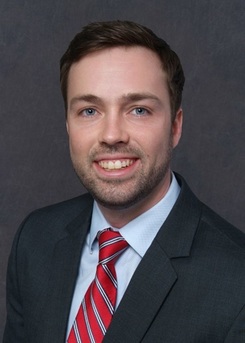Millennials Get 'Bad Rap,' NJ Firms Say (But Seriously, Put Down the Phone)
When Eric Alvarez moved to Norris, McLaughlin & Marcus in Bridgewater a little less than a year ago, his reasons were of a reputedly common refrain…
January 18, 2018 at 08:00 AM
7 minute read
 Eric Alvarez
Eric Alvarez When Eric Alvarez moved to Norris, McLaughlin & Marcus in Bridgewater a little less than a year ago, his reasons were of a reputedly common refrain for those of his generation.
“I want to be looked at as a person and respected for the work that I do,” said Alvarez, 30, a litigation associate in the firm's Bridgewater office, noting what he calls “an unfortunate way firms have evaluated people in the past.”
“I don't think it's good for firms to look at people as just a number on a spreadsheet,” he added, naming billable hours quotas and realization rates as two benchmarks he said ought not define a practitioner. “If you just go by the numbers, it doesn't tell the whole story.”
The experience Alvarez says he's getting at 136-lawyer Norris McLaughlin, such as face time with partners, along with some added perks, such as the 10-minute commute, are the sort of qualities millennial lawyers are seen as preferring. And while some firm and practice leaders have privately expressed some disconnect in dealing with millennial lawyers—citing a reliance on electronic communication and an affinity for remote work as common concerns—midsize firm leaders in New Jersey don't report any serious problems, and take steps to retain workers from a notoriously mobile demographic.
Indeed, every generation has a gap to overcome in dealing with its successors, technological or otherwise.
“When we were doing it, we had memory typewriters,” said Christopher Gibson, current managing partner and onetime summer associate at 180-lawyer Archer & Greiner.
At the Haddonfield-based firm, Gibson said, roughly 75 percent of associates, and about 10 out of 50 partners, are from the millennial generation—the definition of which varies, but generally encompasses those born after 1980 through most of the 1990s.
“They certainly communicate a lot more electronically, both socially and professionally,” Gibson said. “I don't think it's a weakness. It's just a fact.”
Though reluctant to assign common traits, Gibson said the firm's millennial lawyers tend to have some clear strengths: Namely a sense of ownership of the firm, and a high level of curiosity about its makeup and management.
In order to cater to this generation of lawyers, Archer & Greiner's leaders have implemented more one-on-one meetings, launched an associate development committee, and made other policy-level changes. They've also “put real dollars” into social issues their young lawyers care about, donating to organizations, such as the Boys & Girls Clubs, where those young lawyers are involved, according to Gibson.
As for diversity initiatives and emphasis on work/life balance, “a lot of that has come about because of young people opening their mouths,” he said.
Michael O'Donnell, co-managing partner at 146-lawyer Riker Danzig Scherer Hyland & Perretti in Morristown, said he “took up golf” as a rainmaking tool years ago, whereas associates today are adept at generating business via electronic communication. At Riker Danzig, associates are tasked with updating firm blogs, and are trained on business generation, typically by younger partners, he said.
Millennials are more receptive and attuned to climbing the ladder now that partnership isn't a given based on seniority alone. “They're looking for ways,” he said.
O'Donnell did acknowledge a couple issues he said are common with millennial lawyers.
One is a tendency to focus on individual tasks in a client's case, and “you have to remind them it's an an organic whole,” he said. “If you find something,” such as how another court's opinion might impact a client matter, “you need to speak up,” he added.
Another issue, O'Donnell said: “When they're out with clients and they're supposed to be paying attention, they don't know to keep their phones in their pockets. But that's something you can easily correct.”
“I know everyone says they're so vastly different,” O'Donnell said. “They're not. They're just young.”
Norris McLaughlin's Alvarez said billable quotas and “an expectation to either be in the office or be constantly connected” led him away from the Morristown office of Locke Lord in February 2017.
“Here, management understands we are also people,” Alvarez said of his new firm. There's also “an investment in the associates here, and you can feel it,” he added. “They look at you as an investment.”
In addition to professional development for associates, the firm invests in community organizations and causes in which associates are involved, Alvarez said. “It doesn't feel hollow either,” he said.
There's also the associates committee, which coordinates training sessions, with the help of partners and marketing staff, on such topics as business development and “finding a niche,” and a group of partners who are ”very open about workflow and work-life balance,” he said.
Alvarez said he takes advantage of work flexibility, though he's always available by phone, and hasn't run into communication problems or philosophical differences with older partners.
R. Max Crane, managing partner of 140-lawyer Sills, Cummis & Gross in Newark, put the dynamic in different terms: Those who complain about millennials are like “your cranky old uncle,” he said. “Truthfully, I think [millennials] get a bad rap.”
Crane said the firm has long sought to offer the more engaging client work and lifestyle balance that's harder to come by at other firms, where “they expect to kind of own you.”
“We've always looked at our direct competition as the big New York firms, all of whom have some economic advantage over our pay structure,” Crane said. “If you can't match somebody dollar-for-dollar,” you have to offer better work and lifestyle, he said.
For the past 20 years, there's also been an annual “technology allowance” at the firm (which, Crane reminisced, lawyers used to use on printers and fax machines).
“[Millennials are] more holistic. We didn't allow ourselves to be fully integrated human beings,” Crane said of his own generation. “They do sometimes head out earlier, physically. … In our case, we stayed. We stayed as long as we had to and sacrificed some of that home life.”
Plugged In
It appears working remotely was the truly transformative factor. Even if productivity is maintained or improved, it can be difficult to see past the empty offices and cubicles. But it's long been commonplace for lawyers to be equipped, allowed and even encouraged to work remotely on an almost entirely discretionary basis. How New Jersey midsize firms address those work habits, if at all, varies, with instances of heavy-handedness hard to come by.
At Archer & Greiner, attorneys of all ages work from home at least occasionally.
“Do millennials do that even more? Sure. Do we have a policy on that? No. … Because I find it practically unenforceable,” Gibson said. “The idea is to get the job done. … I don't care if the guy next door to me wants to work from home four days a week.”
At Sills Cummis, client meetings must be done in person, though there's much more flexibility with internal meetings, Crane said. Asked if senior lawyers ever complain about too much remote work, he said: “About once a year.”
At Riker Danzig, associates are required to accompany senior attorneys to depositions and attend client functions, but the firm “learned [its] lesson” years ago about flexible work arrangements, O'Donnell said.
“We got so much more productivity,” he said. “If the work is done, it's done.”
This content has been archived. It is available through our partners, LexisNexis® and Bloomberg Law.
To view this content, please continue to their sites.
Not a Lexis Subscriber?
Subscribe Now
Not a Bloomberg Law Subscriber?
Subscribe Now
NOT FOR REPRINT
© 2025 ALM Global, LLC, All Rights Reserved. Request academic re-use from www.copyright.com. All other uses, submit a request to [email protected]. For more information visit Asset & Logo Licensing.
You Might Like
View All

After DEI Rollbacks, Employment Lawyers See Potential For Targeting Corporate Commitment to Equality
7 minute read
Topping Kirkland, Weil Won the Most Valuable Major Bankruptcy Retentions of 2024
Trending Stories
- 1'No Retributive Actions,' Kash Patel Pledges if Confirmed to FBI
- 2Justice Department Sues to Block $14 Billion Juniper Buyout by Hewlett Packard Enterprise
- 3A Texas Lawyer Just Rose to the Trump Administration
- 4Hogan Lovells Hires White & Case Corporate and Finance Team in Italy
- 5New York District Attorneys Endorse Governor's Proposed Rollback of Discovery Reforms
Who Got The Work
J. Brugh Lower of Gibbons has entered an appearance for industrial equipment supplier Devco Corporation in a pending trademark infringement lawsuit. The suit, accusing the defendant of selling knock-off Graco products, was filed Dec. 18 in New Jersey District Court by Rivkin Radler on behalf of Graco Inc. and Graco Minnesota. The case, assigned to U.S. District Judge Zahid N. Quraishi, is 3:24-cv-11294, Graco Inc. et al v. Devco Corporation.
Who Got The Work
Rebecca Maller-Stein and Kent A. Yalowitz of Arnold & Porter Kaye Scholer have entered their appearances for Hanaco Venture Capital and its executives, Lior Prosor and David Frankel, in a pending securities lawsuit. The action, filed on Dec. 24 in New York Southern District Court by Zell, Aron & Co. on behalf of Goldeneye Advisors, accuses the defendants of negligently and fraudulently managing the plaintiff's $1 million investment. The case, assigned to U.S. District Judge Vernon S. Broderick, is 1:24-cv-09918, Goldeneye Advisors, LLC v. Hanaco Venture Capital, Ltd. et al.
Who Got The Work
Attorneys from A&O Shearman has stepped in as defense counsel for Toronto-Dominion Bank and other defendants in a pending securities class action. The suit, filed Dec. 11 in New York Southern District Court by Bleichmar Fonti & Auld, accuses the defendants of concealing the bank's 'pervasive' deficiencies in regards to its compliance with the Bank Secrecy Act and the quality of its anti-money laundering controls. The case, assigned to U.S. District Judge Arun Subramanian, is 1:24-cv-09445, Gonzalez v. The Toronto-Dominion Bank et al.
Who Got The Work
Crown Castle International, a Pennsylvania company providing shared communications infrastructure, has turned to Luke D. Wolf of Gordon Rees Scully Mansukhani to fend off a pending breach-of-contract lawsuit. The court action, filed Nov. 25 in Michigan Eastern District Court by Hooper Hathaway PC on behalf of The Town Residences LLC, accuses Crown Castle of failing to transfer approximately $30,000 in utility payments from T-Mobile in breach of a roof-top lease and assignment agreement. The case, assigned to U.S. District Judge Susan K. Declercq, is 2:24-cv-13131, The Town Residences LLC v. T-Mobile US, Inc. et al.
Who Got The Work
Wilfred P. Coronato and Daniel M. Schwartz of McCarter & English have stepped in as defense counsel to Electrolux Home Products Inc. in a pending product liability lawsuit. The court action, filed Nov. 26 in New York Eastern District Court by Poulos Lopiccolo PC and Nagel Rice LLP on behalf of David Stern, alleges that the defendant's refrigerators’ drawers and shelving repeatedly break and fall apart within months after purchase. The case, assigned to U.S. District Judge Joan M. Azrack, is 2:24-cv-08204, Stern v. Electrolux Home Products, Inc.
Featured Firms
Law Offices of Gary Martin Hays & Associates, P.C.
(470) 294-1674
Law Offices of Mark E. Salomone
(857) 444-6468
Smith & Hassler
(713) 739-1250







